【干货】全球最大的土木工程信息出版社ASCE推荐土木工程书籍(一)
更新时间:2020-07-23
美国土木工程师学会(The American Society of Civil Engineers,简称ASCE)成立于1852年,至今已有150多年的悠久历史,是历史最久的国家专业工程师学会。现在,ASCE已是全球土木工程领域的领导者。
ASCE也是全球最大的土木工程信息知识的出版机构,目前已出版5万多页的期刊、会议录及各种图书和标准,并正以每年8000篇的频率增长。这些文献都被收录在ASCE数据库中。2018年,ASCE数据库的35种专业期刊、500多卷会议录、350多本电子图书,文献总数超过12万篇。
ASCE为土木工程从业者和研究者提供对新兴技术和前沿技术发现的全面而深入的研究信息。
小编今天特地从ASCE官网摘录了几本有关土木工程领域相关的书籍供大家查阅,可以学习借鉴国外相关前沿领域的知识以及领略一些学者对土木工程的见解与看法。拉至文末领取书籍完整pdf
一、Education Summit: Mapping the Future of Civil Engineering Education
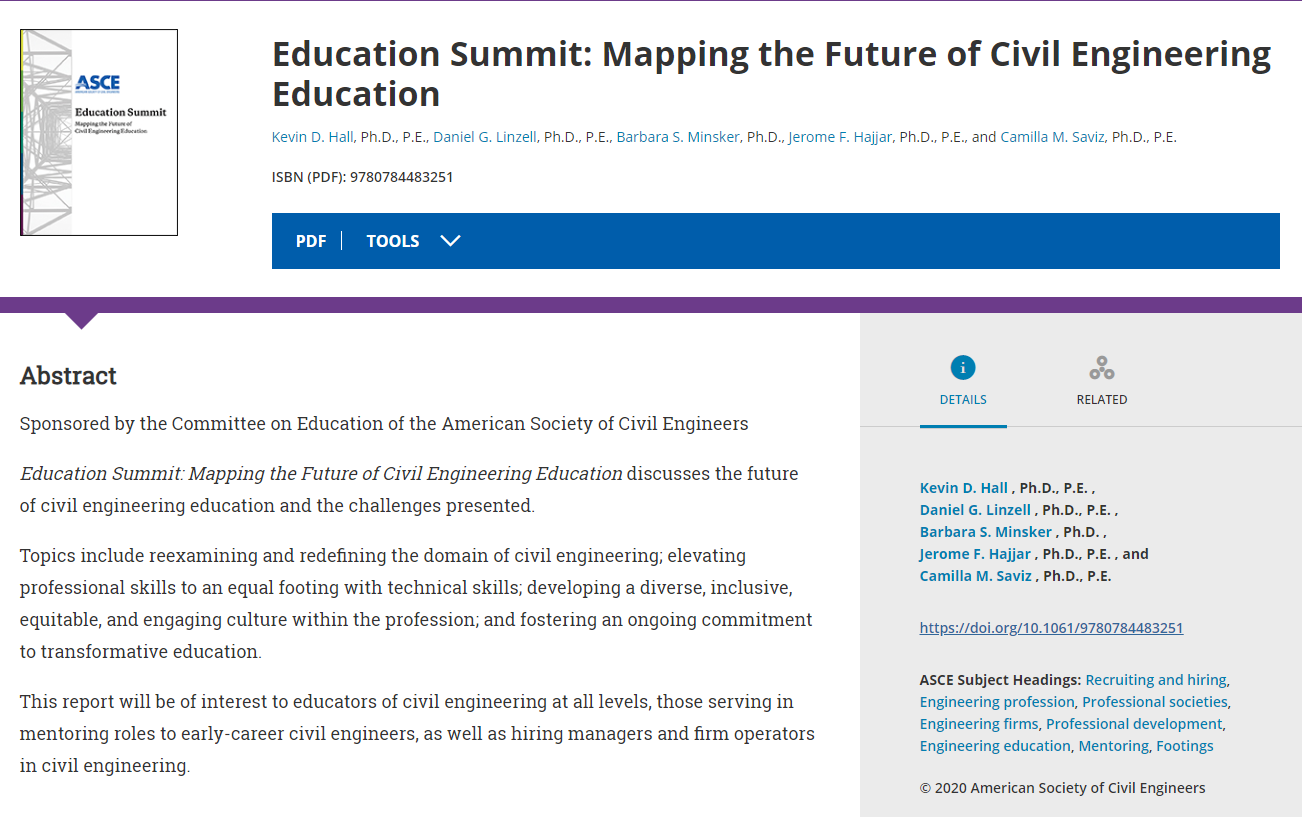
authors
Kevin D. Hall, Ph.D., P.E., Daniel G. Linzell, Ph.D., P.E., Barbara S. Minsker, Ph.D., Jerome F. Hajjar, Ph.D., P.E., and Camilla M. Saviz, Ph.D., P.E.
Abstract
二、Civil Engineering Technologist Body of Knowledge
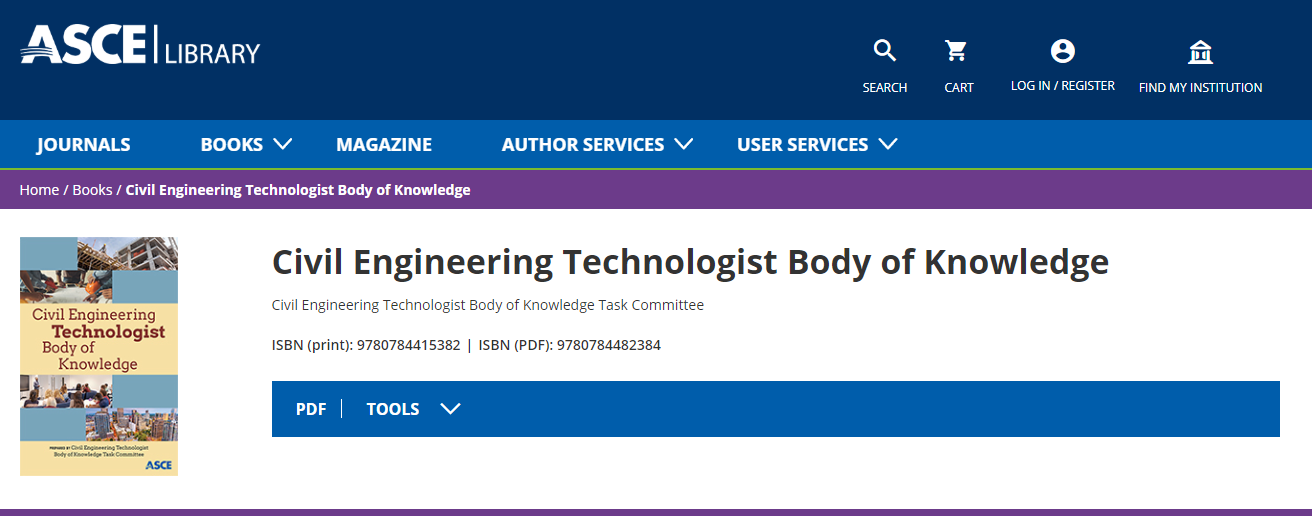
authors
Civil Engineering Technologist Body of Knowledge Task Committee
Abstract
三、Civil Engineering Body of Knowledge: Preparing the Future Civil Engineer
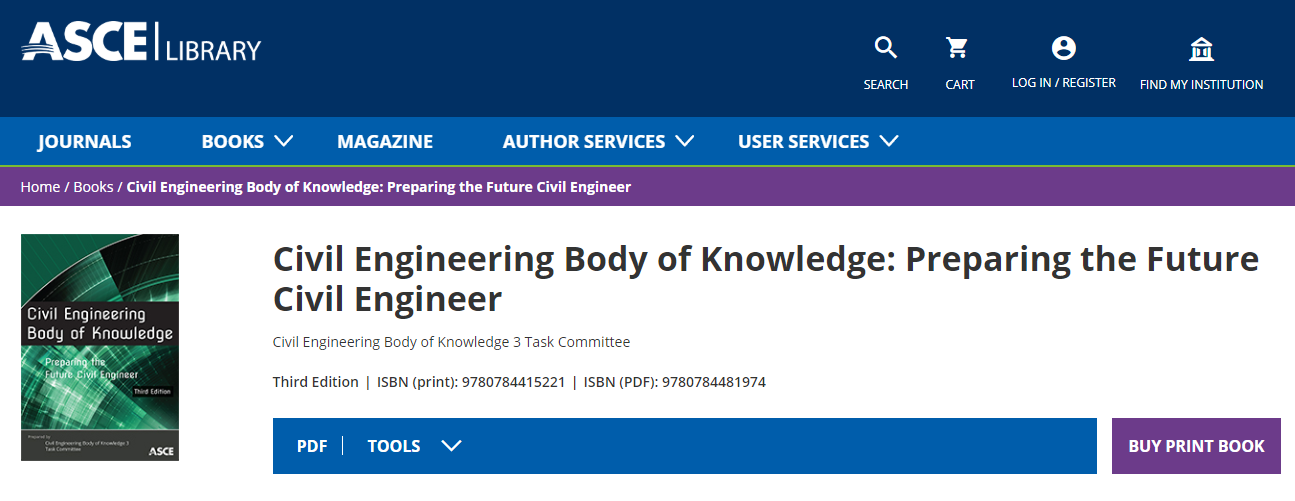
authors
Civil Engineering Body of Knowledge 3 Task Committee
Abstract
Prepared by the Civil Engineering Body of Knowledge 3 Task Committee of the Committee on Education of the American Society of Civil Engineers ASCE defines the Civil Engineering Body of Knowledge as the necessary knowledge, skills, and attitudes required of an individual entering the practice of civil engineering at the professional level.
Civil Engineering Body of Knowledge: Preparing the Future Civil Engineer, Third Edition, outlines 21 foundational, technical, and professional practice learning outcomes for individuals entering the professional practice of civil engineering. Recommendations for fulfilling the outcomes through formal education, both at the undergraduate and postgraduate levels, and mentored early career experience are provided.
Topics include
Foundational course education,
Engineering fundamentals,
Engineering technical skills,
Engineering curriculum development, and
Business and professional skills and responsibilities.
四、Adapting Infrastructure and Civil Engineering Practice to a Changing Climate
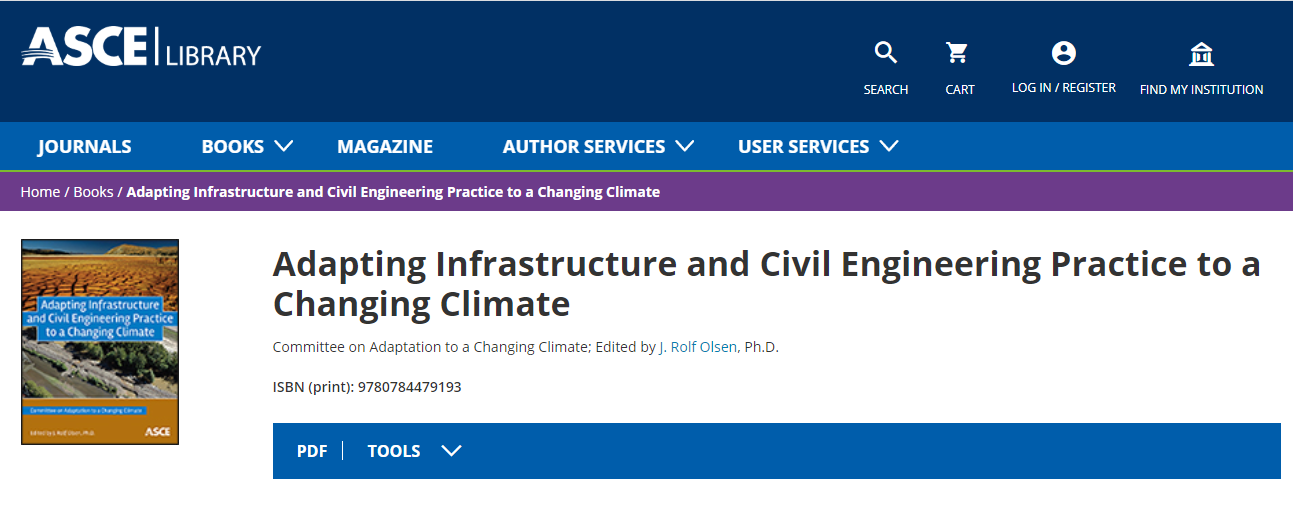
authors
Committee on Adaptation to a Changing Climate; Edited by J. Rolf Olsen, Ph.D.
Abstract
Sponsored by the Committee on Technical Advancement of ASCE Adapting Infrastructure and Civil Engineering Practice to a Changing Climate presents an accurate discussion of the potential significance of climate change to engineering practice. Although considerable evidence indicates that the climate is changing, significant uncertainty exists regarding the location, timing, and magnitude of this change over the lifetime of infrastructure. Practicing engineers are faced with the dilemma of balancing future needs for engineered infrastructure with the risks posed by the effects of climate change on long-term engineering projects. The gap between climate science and engineering practice somehow must be bridged. This report identifies the technical requirements and civil engineering challenges raised by adaptation to a changing climate.
Topics include: review of climate science for engineering practice; incorporating climate science into engineering practice; civil engineering sectors that might be affected by climate change; needs for research, development, and demonstration projects; and summary, conclusions, and recommendations. Three appendixes illustrate different engineering approaches to assessing or preparing for climate change.
Practitioners, researchers, educators, and students of civil engineering, as well as government officials and allied professionals, will be fascinated by this discussion of the trade-offs between the expenses of increasing system reliability and the potential costs and consequences of failure to future generations.
完整版pdf
后台回复“书籍”即可领取




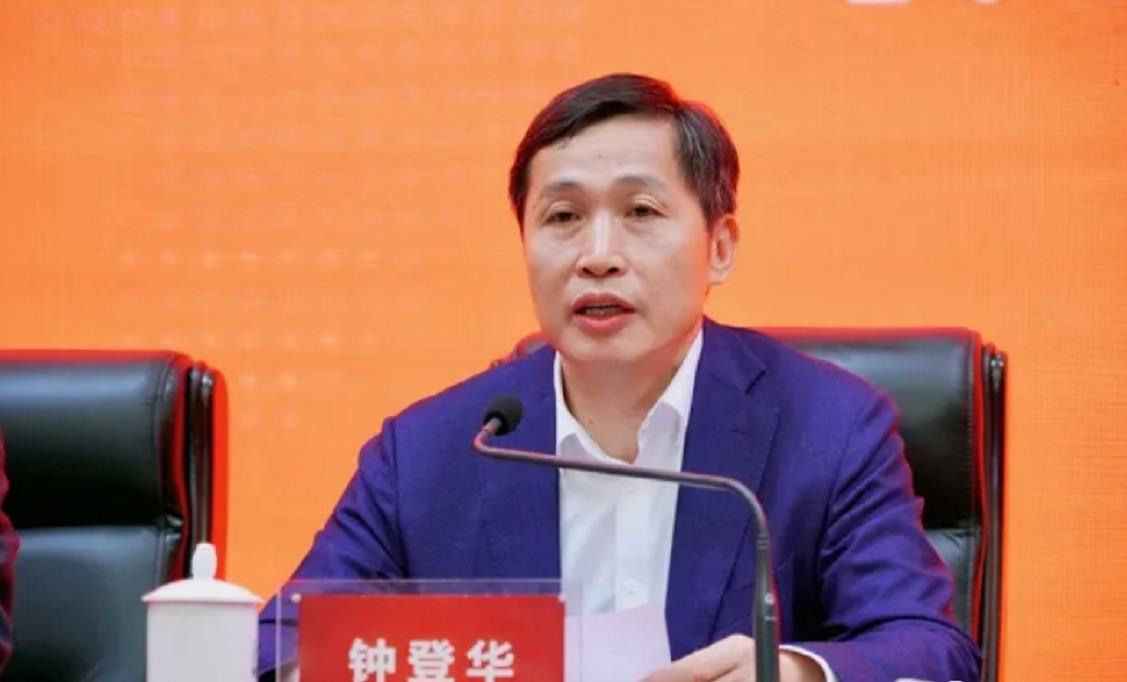




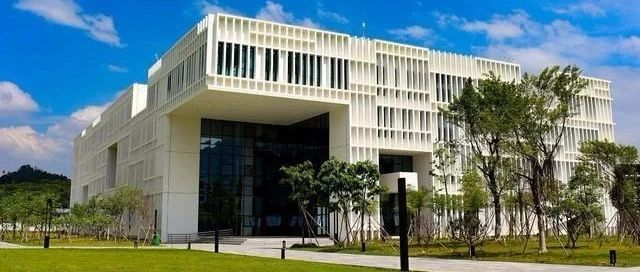













.png)


.png)


.png)

.png)

